Andy King eyes AI coaching development and shares how wave pools will make world champions
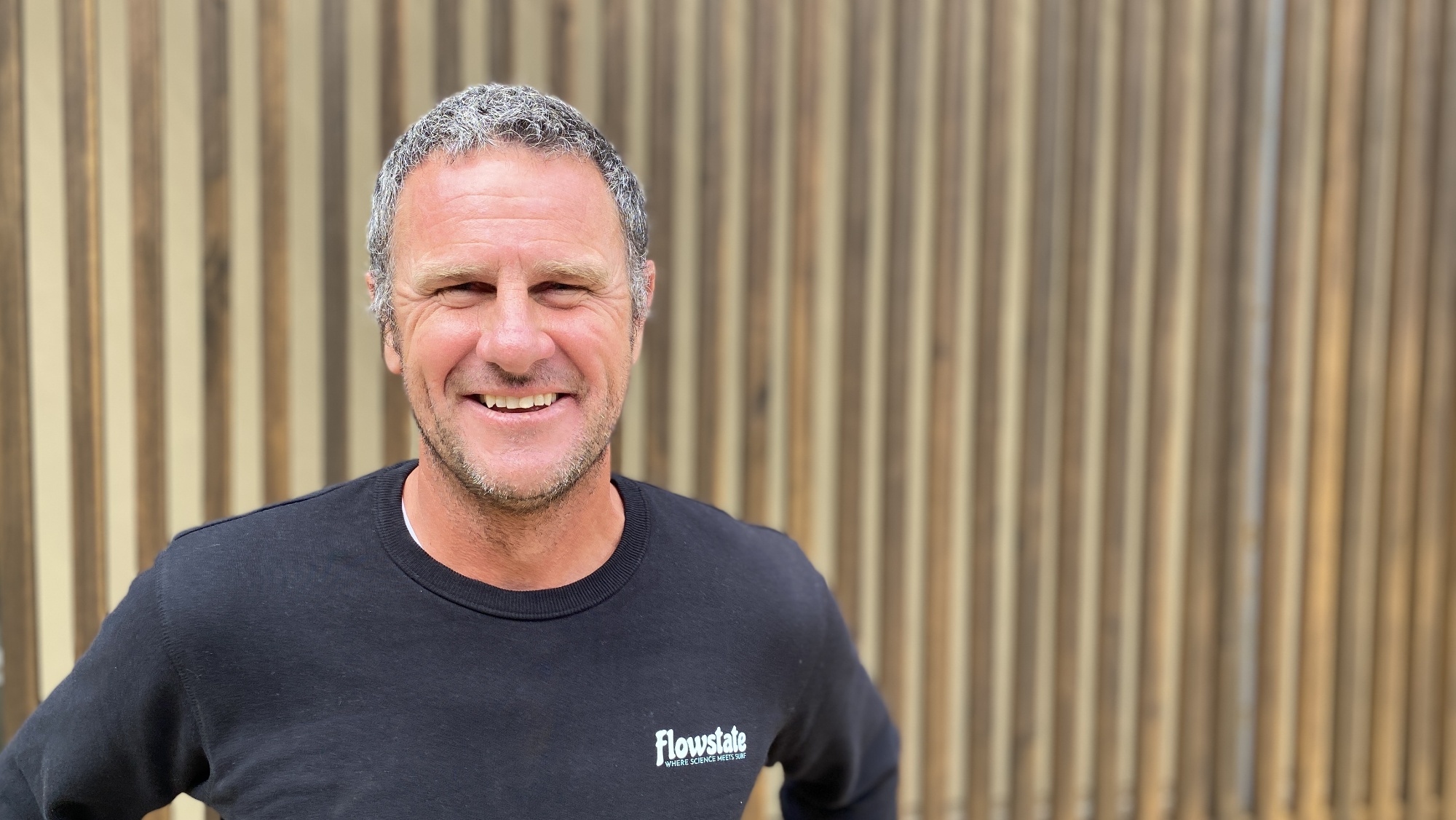
Andy King has a wonderfully intimate presence when he speaks to you. It’s like that moment when a friend leans in close to tell you something very important. He seems to do this 24/7. Everything Andy says is delivered with a sincere, genuine poise rarely found in today’s conversations. I tried to figure out if it was due to conversation training, or maybe his hearing aids or if Andy had figured out a larger truth to being a human being. I went with the latter.
In 2004 rising surf star Andy King nearly lost his life in a street fight. The recovery process, including learning to live with a Cochlear hearing implant and compromised equilibrium, reshaped his view of the world. In this reprogramming, and with help from friends like Mick Fanning, Andy discovered he was skilled at motivating others. This led to coaching work for Red Bull, Surfing Australia, Hurley High Performance Centre and for several world champs including Mick, Gabe and Tyler.
We were fortunate enough to talk to Andy in San Diego. He was attending with the Flowstate team who have developed an AI-powered video capture system for wave pools. The company is creating an AI coach with the goal of automating the feedback process, and Andy is an integral part of that endeavor.
“Kingy was one of the early people who got to test our Flowstate system at URBNSURF and he was blown away by what we’d created,” said CEO Luke Wallace who refers to Andy as a Salty Yoda. “We brought in Kingy to the newly created role of Head Coach to work with us in developing our coaching product. As we go through that process of R&D, we need that eagle eye, that voice of truth to help us identify what we’re getting right and what’s not. Our goal is to be able to accelerate surfing performance from the white water to a world title.”
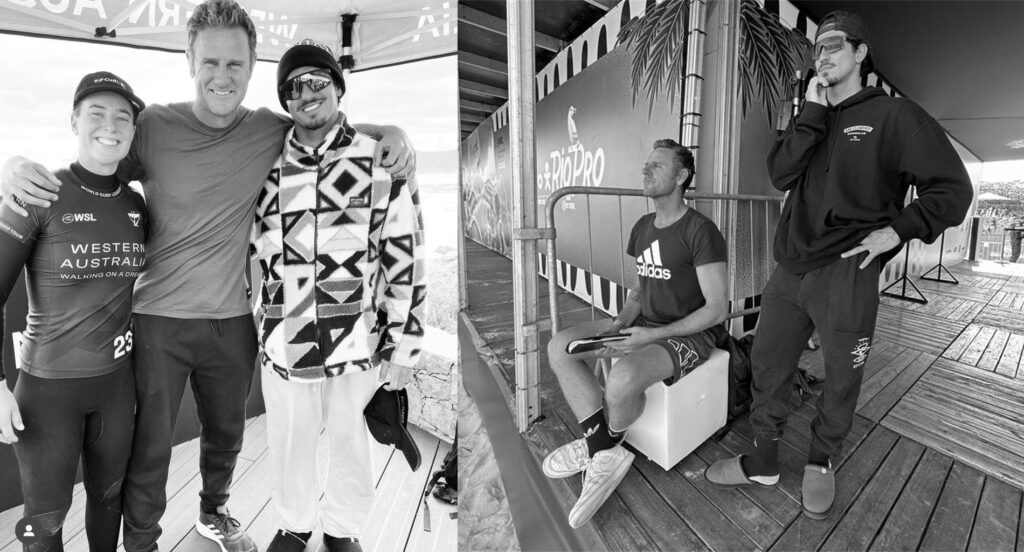
Andy, what is your official job title?
Athlete soldier.
Athlete soldier? Could you elaborate?
Well, some might call it a coach, but I’m not too fond of that term. Given the caliber of athletes I work with, like Gabe Medina and Tyler Wright, it’s not about teaching them how to surf. We approach it differently. It’s not about coaching, it’s about eliminating any hindrances they might have. This allows them to have the freedom to be creative and perform their best. That’s why I prefer referring to it as a soldier’s job. They’re the ones accountable for their performance. I merely remove any obstacles and ensure circumstances are favourable for them to win.
Can you elaborate on these obstacles and how you manage to eliminate them?
Well, given their fame, interference is a common issue. The method of removing these obstacles varies as it depends on each athlete and the unique challenges they face during an event. It’s difficult to provide an exact scenario. The key is to always be there for them, ensuring they’re in an environment that allows them to perform at their best, as per their individual requirements. It’s not just about one specific aspect, it’s multi-faceted. It’s personal to each athlete. Another important aspect is to help them find a reason to continue improving and remain passionate about what they do, despite their success. So I strive to find that motivating factor for them at each event.
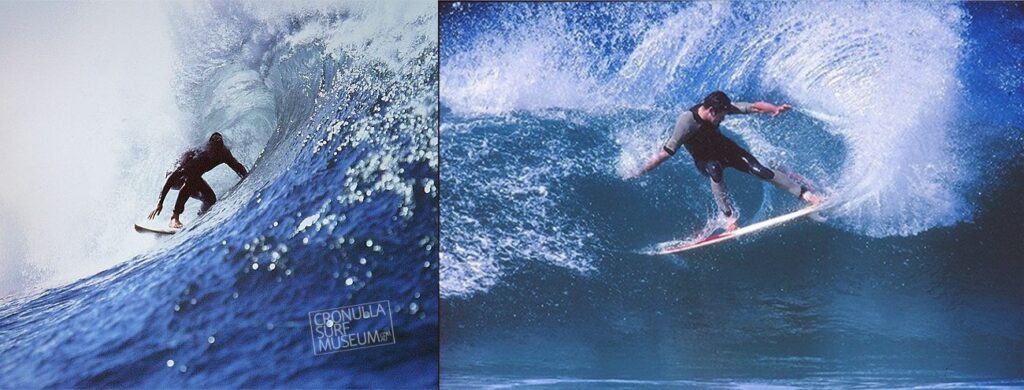
Can you share an example from your experience with a past athlete?
Certainly. As time has passed, things have become less choreographed than before. The challenge now is to keep them inspired. We often draw inspiration from different sports like skateboarding or snowboarding and try to incorporate that into surfing. Surfing has evolved significantly, with a lot of emphasis now on creativity. For instance, when we started coaching in 2005 with the Red Bull campaign, it was highly choreographed, aiming to hit certain milestones and striving for perfection. Now, it’s about expression and artistic interpretation. So, keeping the athletes inspired and introducing fresh ideas, often borrowed from other sports, is a significant part of our approach.
How do wave pools factor into your work methodology, given the speed at which you operate?
Wave pools offer a remarkable advantage due to their consistency. In the ocean, finding a repetitive section for training is challenging. We used to rely on jet skis to locate the right sections for specific training needs. If you consider sports like skateboarding or snowboarding, they have consistent ramps that athletes can practice on repeatedly. Wave pools have brought that same consistency to surfing. This repetition boosts learning and allows for immediate feedback. Capturing footage for analysis is easier in a pool setting as well. I believe that a single day of rigorous training in the pool equates to a month of training in the ocean. And that’s a conservative estimate. The speed at which progress is made in a pool is comparable to that in skateboarding or snowboarding. These pools have also transformed our coaching approach, allowing us to dissect movements in a more controlled environment. Plus, they eliminate many of the external variables that often serve as excuses or interferences, thus accelerating the learning process significantly.
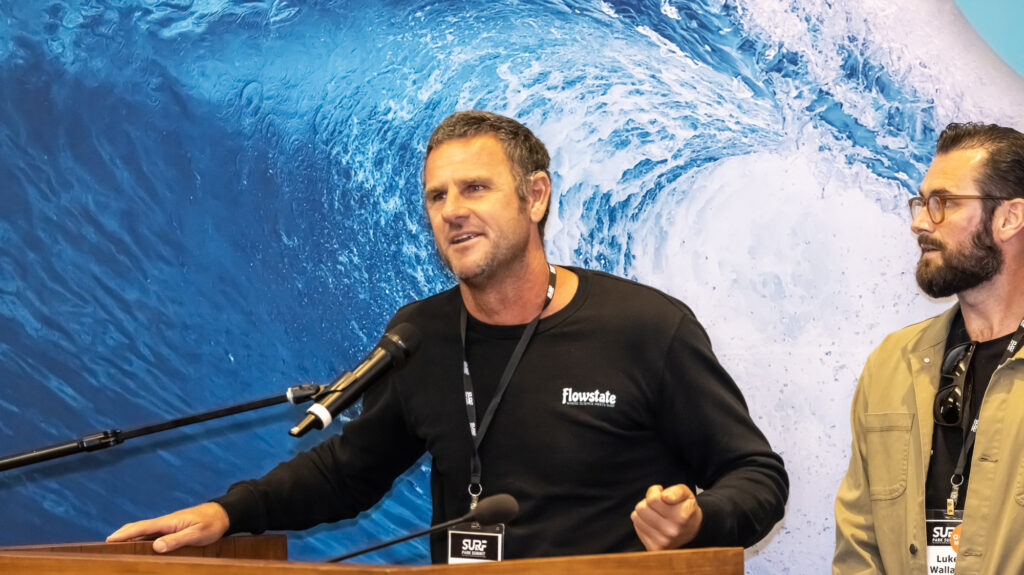
Can you share an example of a specific achievement with one of your athletes in a wave pool?
Absolutely. In women’s surfing, we had a training block in Melbourne before the Tahiti event. We practiced on an advanced slab wave that closely resembled the conditions in Tahiti. This allowed the athletes to fine-tune their posture and tube riding. We rented the pool after hours, from 10:00 PM to 2:00 AM, providing over 100 opportunities to practice their rail grabs and perfect their lines. This repetition greatly boosted their confidence. If we had trained at Tahiti’s Chopu amid the crowds, they might have only caught three waves in a three-hour session. In the pool, they could safely master the technical aspects of their performance, including paddle entry, edge control, and equipment testing. The results at the Tahiti event were a testament to the effectiveness of our pool training. It allowed us to achieve learning outcomes that we couldn’t have in a natural environment.
Do you have any advice or rules for the average surfer who visits the pool and wants to improve their skills?
Certainly. When you have the opportunity for repetition in a pool, it’s crucial to think about your long-term goals, even as a beginner. One common issue is that beginner coaches often focus on getting the surfer to the shore, intermediate coaches then have to undo the beginner’s methods, and expert coaches have to work against the ingrained habits from the 10,000-hour rule. My advice is to start with a neutral stance. In any sport, be it martial arts or surfing, a neutral stance—where you’re not leaning or sticking out, and there’s no energy leakage—is advantageous. Think of it as a compression and extension over the board. If beginners can get this foundation right, their improvement rate will be significant because no one will need to correct a bad habit they’ve formed. Think of it as a slinky moving up and down—you want to maintain that neutrality between two panes of glass on the surfboard, avoiding any tipping or falling. Learning this early on will speed up your progress to the intermediate level without needing to fix any bad habits along the way.
That’s fascinating.
Indeed, and that’s where the pool comes into play. As I mentioned, the speed at which you can achieve this is remarkable if the process is implemented correctly. In a pool, progress is visible and achievable because you can see the next level of the break. It’s all about stages. Unlike in the ocean where conditions like wind constantly change, a pool provides a consistent environment to thread your progress.
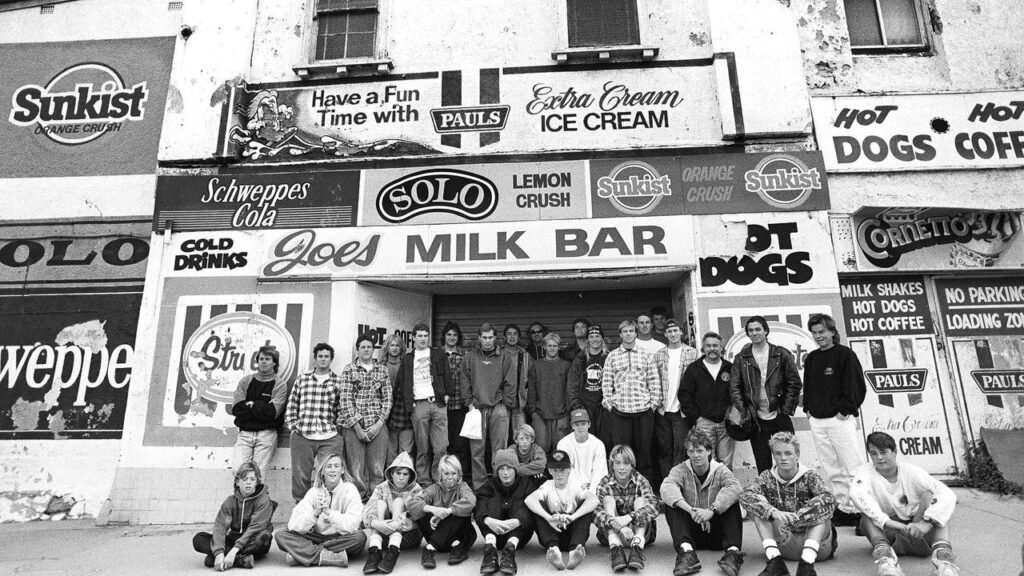
Related Coverage
